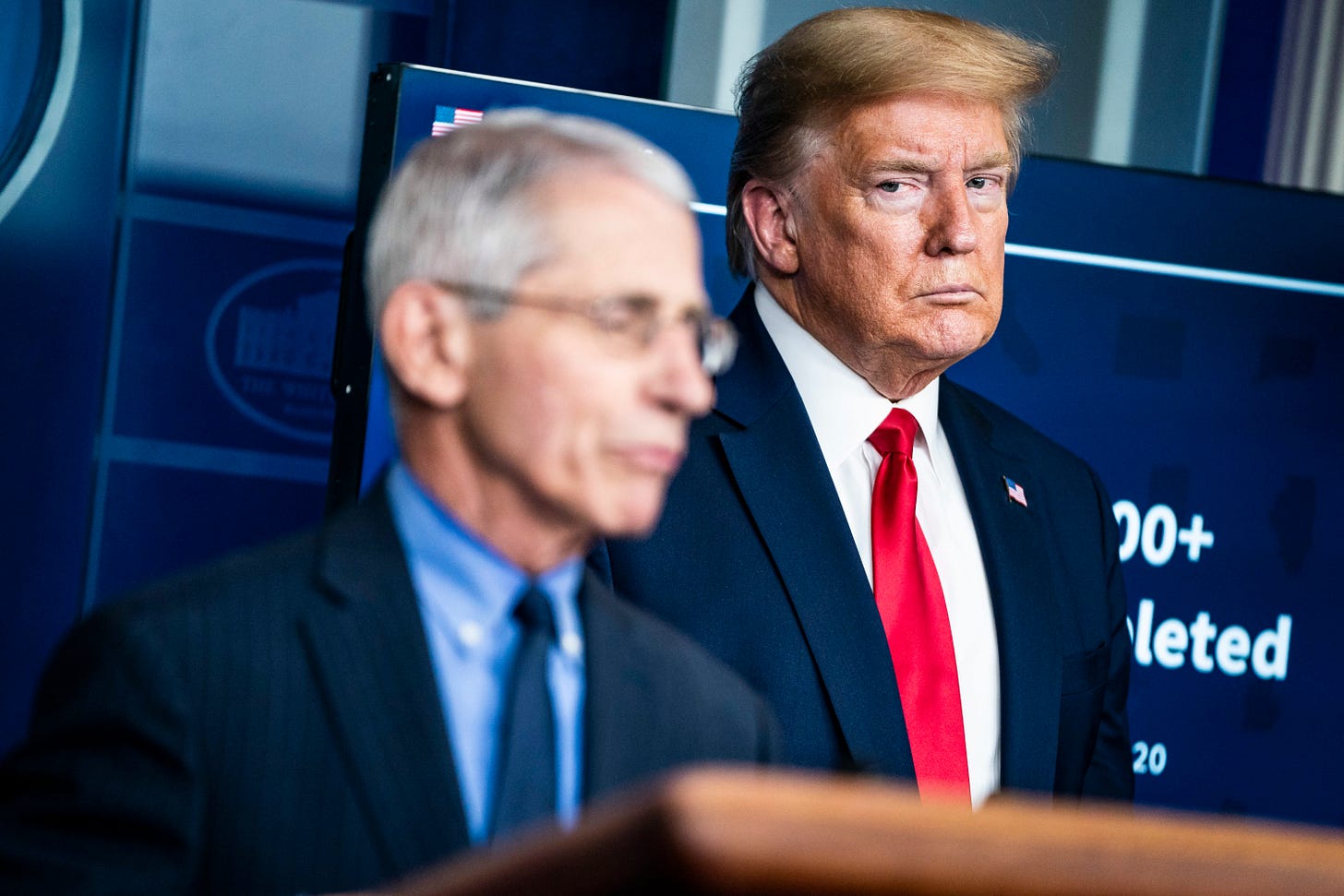November Surprise: Trump to Fire Fauci After Election
Trump ensures the campaign’s final news cycle is about his virus trutherism.

At the end of a one-day, five-stop coronavirus superspreader tour extending from the Canadian border to the Gulf of Mexico, the president of the United States made an announcement that in any sane world would consume the final 48 hours of his re-election campaign: He plans to fire Anthony Fauci soon after election day.
Watch for yourself:

This in some ways should not come as a surprise but that doesn’t make the fact that he would say it out loud any less of a bombshell. The very existence of this unconscionably reckless campaign swing is all the evidence we need to demonstrate that Trump no longer listens to his erstwhile pandemic adviser. Trump long ago sidelined Dr. Fauci and replaced him with Dr. Quack Atlas, a non-epidemiologist who essentially tells Trump to do whatever he wants. In an interview with the Washington Post published online on Saturday night, Fauci had praised the campaign of Trump’s challenger for “taking [COVID] seriously from a public health perspective.”
So it wasn’t all sunshine and roses in the coronavirus task force.
But prior to Sunday night, the president had seemed to understand that even if he didn’t actually give a rat’s ass about the quarter million people who have died on his watch, politically speaking it was best to at least pretend like he was engaging the popular advisers who . . . ya know . . . have some experience in contagious virus management. In comments to staff that leaked a few weeks ago, Trump seemed to indicate that the PR risk of firing Fauci was the only reason that he was keeping the doctor on in the first place.
But our man-child-in-chief is extremely susceptible to peer pressure, so once he heard the cult—er, crowd—in Opa-locka, Florida start jeering the good doctor, he couldn’t help but end the charade. Fauci would be fired a little bit after the election.
In case you thought this might have just been a flight of fancy on stage, according to one reporter I spoke to recently, Steve Bannon has been saying that Fauci is likely to be fired should Trump win re-election. Trump also recently signed an executive order that would make it easier for him to fire career civil servants like Fauci.
So there’s no reason to take the president’s remarks as one of those oh-so-famous jokes he likes to pretend he told anytime he makes admissions against interest.
Instead the press must dedicate the remainder of the campaign to getting a clear answer from the president on the most important issue facing voters bar none: pandemic management. Does he in fact plan to fire Dr. Fauci? And if so, does that mean he will pursue a strategy of herd immunity, which Fauci has rejected, or will there be some other as-yet-unproduced plan? These crucial questions should dominate the next few days—in addition, of course, to continuing to hold the president and his campaign to account for their undemocratic and un-American attempts to undermine the vote count.
These dual self-inflicted controversies put the president politically in exactly the position he didn’t want to be in during the campaign’s final week—at the center of swirling controversies of his own making. In 2016, he famously surged in the final weeks as the microscope turned to Clinton scandals, after the Comey letter and false FBI leak to Fox News about an impending indictment in the investigation of the Clinton Foundation.
This year, the president’s campaign attempted the same playbook—subbing Hunter Biden’s “laptop from hell” for Hillary’s emails. This “Bobulinski Gambit” was already crashing and burning before the president forced himself back into the spotlight by saying he believed the vote count would be stopped on election night and announcing that America’s most trusted voice on the pandemic would be dismissed.
As a result, when the seniors who are abandoning Trump and late-deciding voters head to the polls on Tuesday, they will be left with the final image of a negligent president pledging to remove the last adult from the room, while a surge in the virus is overloading hospitals, crippling communities, and killing a thousand more Americans each day.


